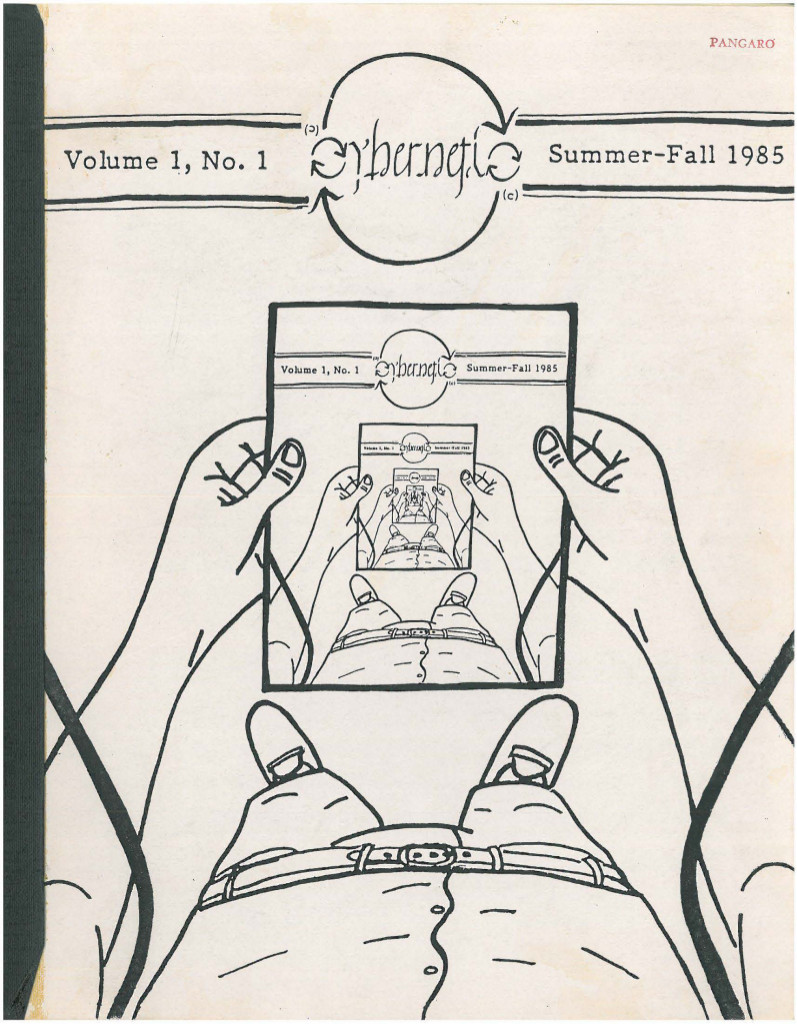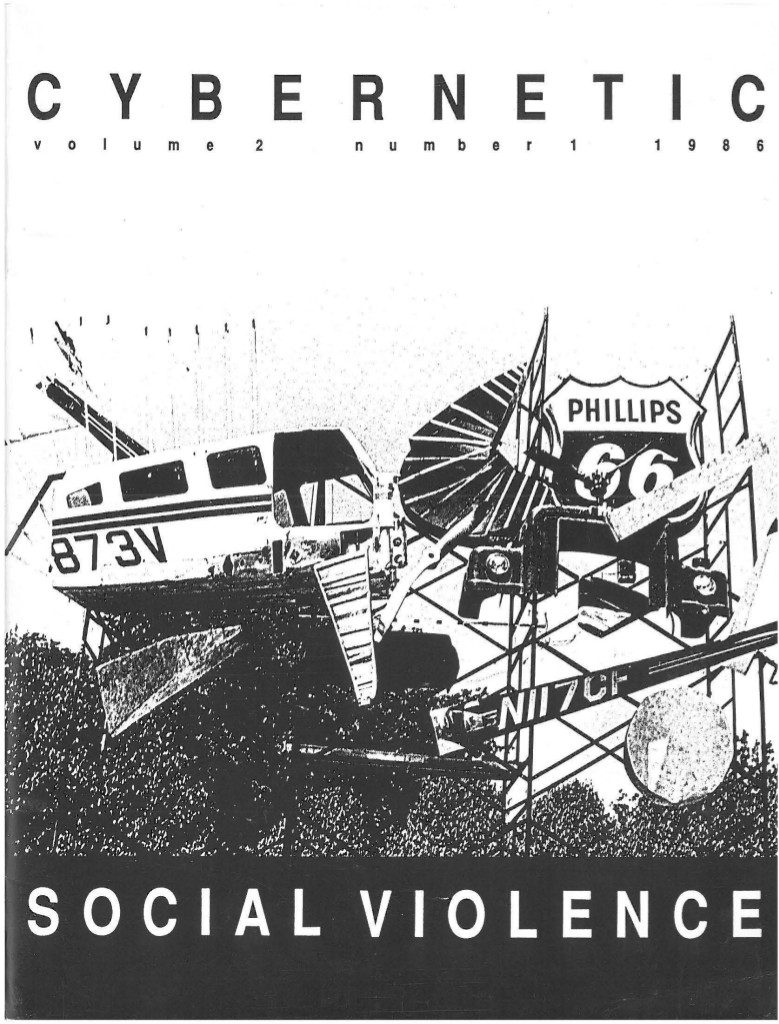Cybernetic, 1-2 (1985-1986)
Filed under magazine | Tags: · autopoiesis, biology, cognition, computing, cybernetics, language, machine, mathematics


Editors: Gordon Pask, Humberto Maturana, Heinz von Foerster, Terry Winograd, Paul Trachtman, Larry Richards
Publisher The American Society for Cybernetics
ISSN 0883-4202
PDF (Vol 1, No 1, Summer-Fall 1985, 148 pp)
PDF (Vol 2, No 1: “Social Violence”, 1986, 82 pp)
Ian Buchanan (ed.): Jameson on Jameson: Conversations on Cultural Marxism (2007)
Filed under book | Tags: · architecture, art, capitalism, cinema, cognition, ideology, literary theory, literature, marxism, modernism, philosophy, politics, postmodern, postmodernism, poststructuralism, psychoanalysis, urbanism, utopia

Fredric Jameson is one of the most influential literary and cultural critics writing today. He is a theoretical innovator whose ideas about the intersections of politics and culture have reshaped the critical landscape across the humanities and social sciences. Bringing together ten interviews conducted between 1982 and 2005, Jameson on Jameson is a compellingly candid introduction to his thought for those new to it, and a rich source of illumination and clarification for those seeking deeper understanding. Jameson discusses his intellectual and political preoccupations, most prominently his commitment to Marxism as a way of critiquing capitalism and the culture it has engendered. He explains many of his key concepts, including postmodernism, the dialectic, metacommentary, the political unconscious, the utopian, cognitive mapping, and spatialization.
Jameson on Jameson displays Jameson’s extraordinary grasp of contemporary culture—architecture, art, cinema, literature, philosophy, politics, psychoanalysis, and urban geography—as well as the challenge that the geographic reach of his thinking poses to the Eurocentricity of the West. Conducted by accomplished scholars from United States, Egypt, Korea, China, Sweden, and England, the interviews elicit Jameson’s reflections on the broad international significance of his ideas and their applicability and implications in different cultural and political contexts, including the present phase of globalization.
The volume includes an introduction by Jameson and a comprehensive bibliography of his publications in all languages.
Interviewers: Mona Abousenna, Abbas Al-Tonsi, Srinivas Aravamudan, Jonathan Culler, Sara Danius, Leonard Green, Sabry Hafez, Stuart Hall, Stefan Jonsson, Ranjana Khanna, Richard Klein, Horacio Machin, Paik Nak-chung, Michael Speaks, Anders Stephanson, Xudong Zhang
Publisher Duke University Press, 2007
Post-Contemporary Interventions series
ISBN 0822340879, 9780822340874
296 pages
John Mullarkey: Refractions of Reality: Philosophy and the Moving Image (2009)
Filed under book | Tags: · cognition, film, film theory, non-philosophy, ontology, philosophy, philosophy of film

Why is film becoming increasingly important to philosophers? Is it because it can be a helpful tool in teaching philosophy, in illustrating it? Or is it because film can also think for itself, can create its own philosophy? Indeed many film-philosophers claim that film does more than merely illustrate philosophical texts: rather, film itself can philosophize in direct audio-visual terms. Too often, however, when philosophers claim to find indigenous philosophical value in cinema, it is only on account of refracting it through their own thought: film philosophizes because it accords with a favoured kind of extant philosophy.
Refractions of Reality: Philosophy and the Moving Image is the first book to examine all the central issues surrounding the vexed relationship between the film-image and philosophy. In it, John Mullarkey tackles the work of particular philosophers and theorists (Žižek, Deleuze, Cavell, Bordwell, Badiou, Branigan, Rancière, Frampton, and many others) as well as general philosophical positions (Analytical and Continental, Cognitivist and Culturalist, Psychoanalytic and Phenomenological). Moreover, he also offers an incisive analysis and explanation of several prominent forms of film theorizing, providing a meta logical account of their mutual advantages and deficiencies that will prove immensely useful to anyone interested in the details of particular theories of film presently circulating, as well as correcting, revising, and re-visioning the field of film theory as a whole.
Throughout, Mullarkey asks whether the reduction of film to text is unavoidable. In particular: must philosophy (and theory) always transform film into pre-texts for illustration? What would it take to imagine how film might itself theorise without reducing it to standard forms of thought and philosophy? Finally, and fundamentally, must we change our definition of philosophy and even of thought itself in order to accommodate the specificities that come with the claim that film can produce philosophical theory?
Publisher Palgrave Macmillan, 2009
ISBN 0230002471, 9780230002470
282 pages

